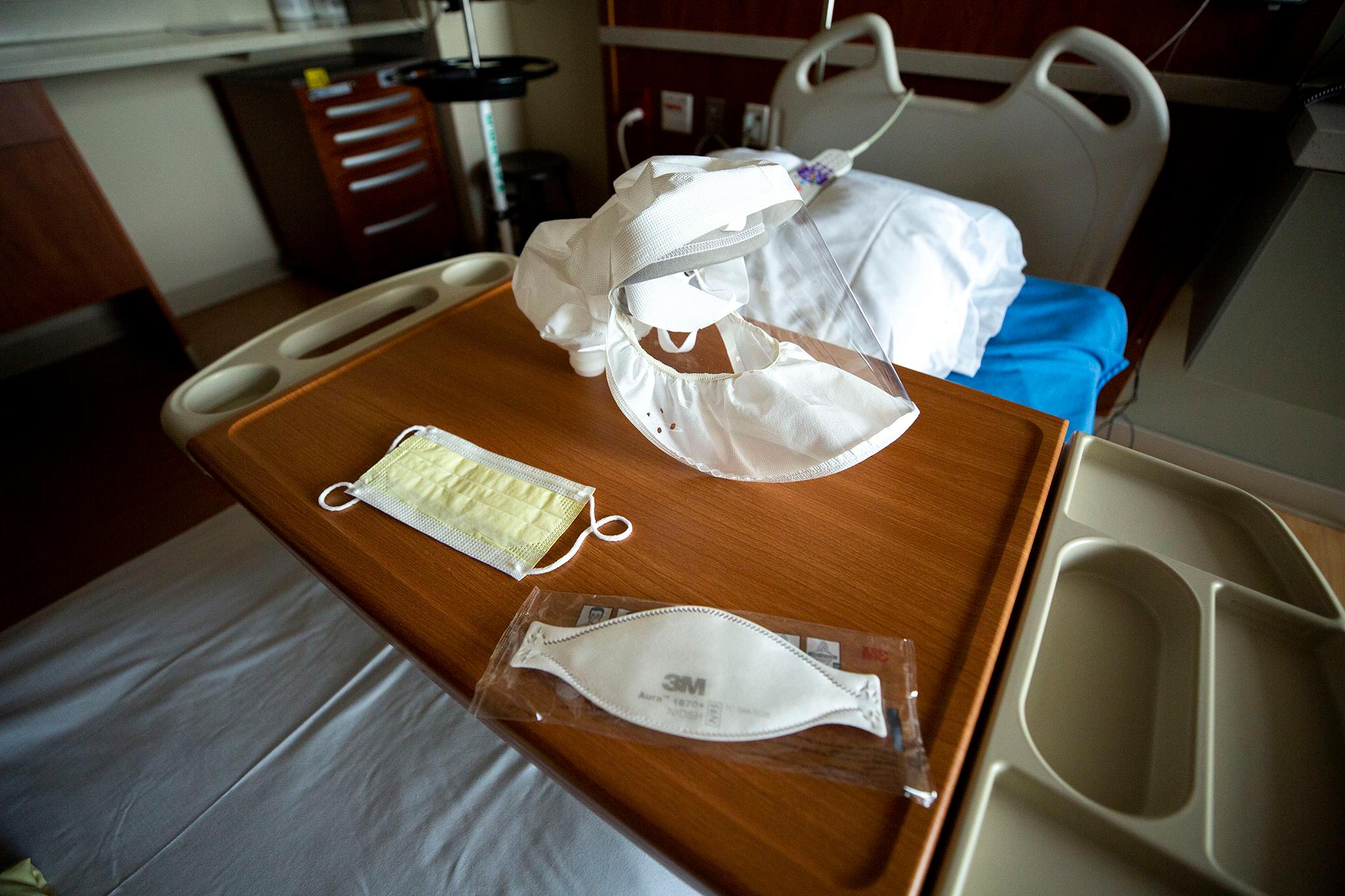Though Colorado is not seeing record numbers of COVID-19 cases, the state's supply of staffed ICU and acute care beds has been at its lowest level since the pandemic began.
Colorado health officials predict things will get worse in the weeks to come, and the state could run out of space.
"COVID-19 hospital demand will increase until late December and could potentially exceed our current hospital capacity," State Epidemiologist Dr. Rachel Herlihy said at last week's meeting of the Governor's Expert Emergency Epidemic Response Committee, CPR reported.
Statewide, 91% of acute care beds were in use Monday, a slight drop from a few days ago when Colorado hit an all-time high of 94%. As for ICU beds, the state hit an all-time high when it had 95% of beds occupied less than a week ago, though occupancy was down to a still staggering 94% on Monday.
In Denver, the numbers were slightly grimmer: 94% of staffed ICU beds were occupied and 95% of acute-care beds were taken at the start of the week.
"To have both of those above 90%, which is where we've been for the last few weeks... that's really significant," said Cara Welch, the senior director of communications for the Colorado Hospital Association. "That's not something we typically see."
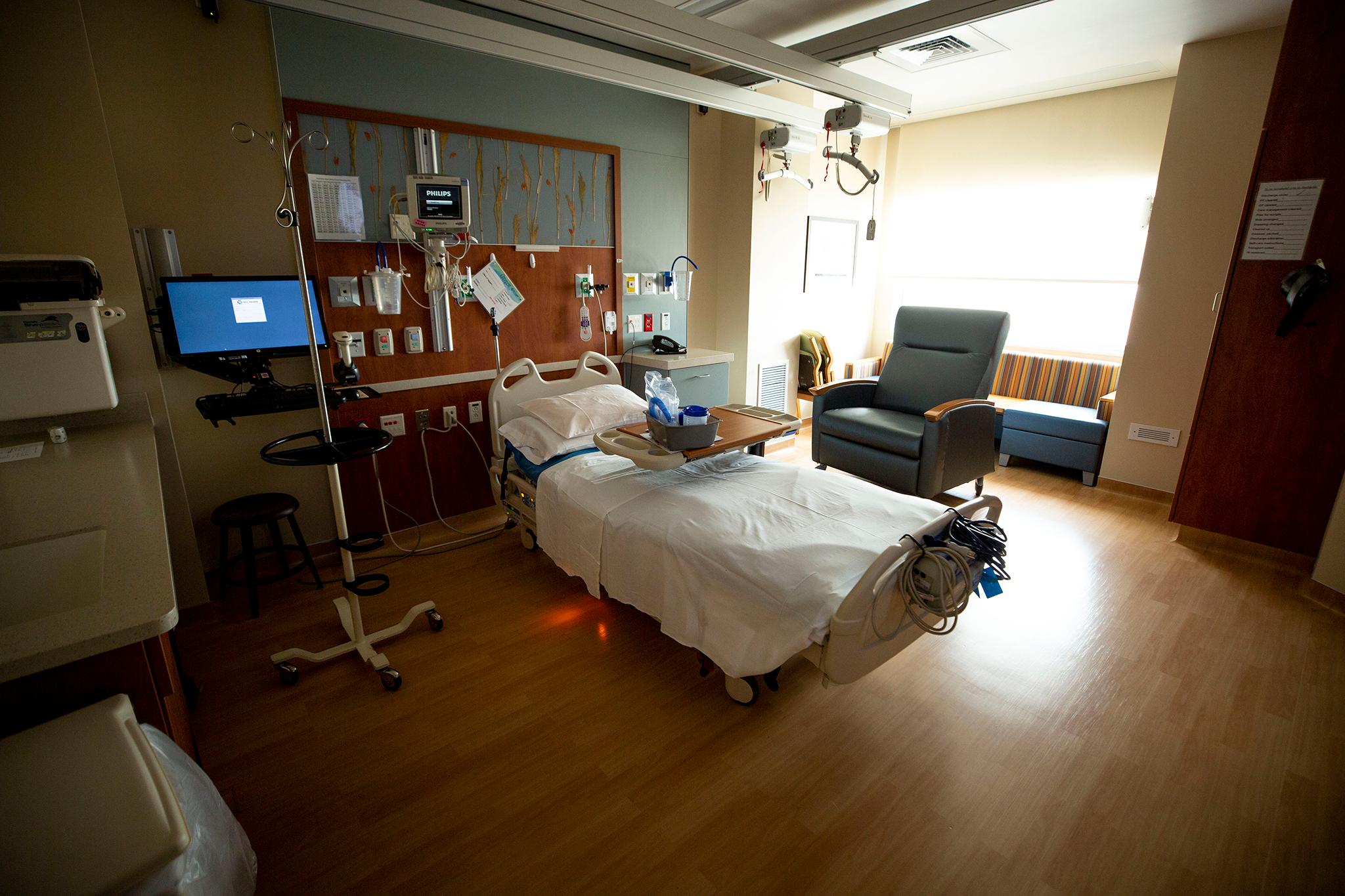
So what's the state doing about the bed shortage?
The state's hospitals recently kicked into emergency mode, instituting Tier 3 of the Combined Hospital Transfer Center. That means patients can now be transferred from one hospital to another -- without having a say in the matter. These transfers are centrally coordinated, data-driven and designed to make the health care system operate as efficiently as possible, according to the Colorado Hospital Association.
The governor has also pushed the state to open 300 to 500 new hospital beds. Figuring out where beds would go is less of a problem than recruiting people to care for patients.
Overtaxed nurses have been leaving the profession, and there isn't exactly a mob of people waiting in the wings. Early on in the pandemic, some healthcare workers came out of retirement to help. There are efforts to bring back more people who have left the field, but nobody is sure whether those recruitment campaigns will work.
"I don't know if they would be as successful now, just given the tone that has been taken towards a lot of health care workers," said Welch. "[They face] difficult working circumstances, they're not lauded as heroes anymore, and instead are challenged and harassed sometimes by patients or family members or community members. So I don't know if the desire to step into that role is as strong as it was at the beginning, unfortunately."
The Department of Regulatory Affairs, which oversees professional licensing in Colorado, has also made some shifts to relax standards and speed up the process of getting new healthcare workers into the field. Both state and federal funding could be used to recruit temporary healthcare workers from national staffing agencies.
The state hopes those resources would be more available than they have been in the past because other states are seeing declining COVID numbers, while Colorado's in crisis.
Federal Emergency Management Agency teams have already begun to arrive in Colorado to help.
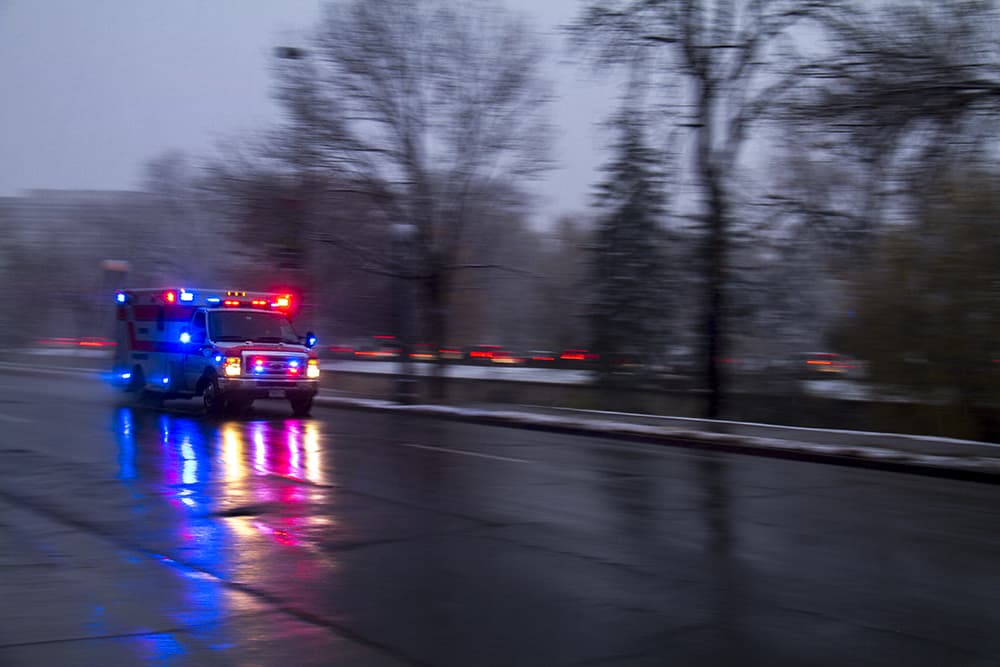
What does all of this mean for Denver hospitals and patients?
Even in non-COVID times, patients are routinely transferred from rural areas to the Denver area's better resourced and staffed hospitals. Hospitals are normally prepared to accept patients from around the region.
During COVID, Denver's hospitals are generally better equipped with expensive and life-saving technology, like ventilators. This means more COVID-19 patients from outside the metro area, under the transfer system, are being brought here.
But now, as the city approaches peak bed capacity, transferring patients from other areas to Denver will affect how local patientsare treated.
The biggest difference is that if you go to the hospital in Denver, once you're stabilized, you could be moved to a mountain town or rural area hospital to make room for patients who have been transported into the city -- even if you object.
That could have big consequences for family and friends who want to visit and might have to drive into the mountains or Eastern Plains to do so.
When people are discharged, they would be transported to their hometown. They would not be stuck with the tab for the transfer between hospitals, thanks to emergency rules from the Colorado Division of Insurance.
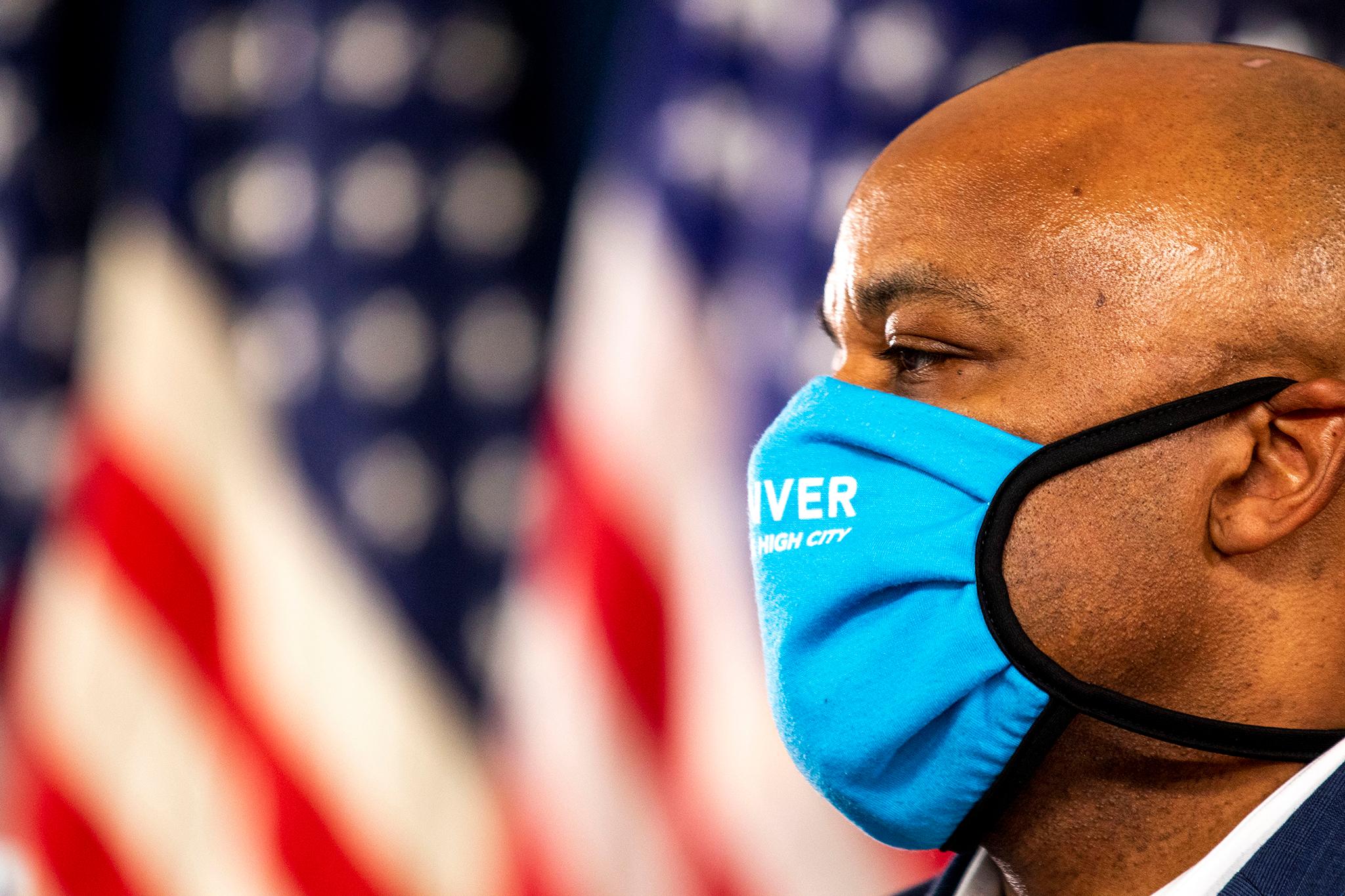
Don't blame people from out of state for clogging hospital beds.
"In terms of out of state transfers, we're actually not seeing an abundance of that occurring across our hospitals," said Stephanie Sullivan, a spokesperson for Denver hospital network HealthONE, which oversees Centennial Hospital, North Suburban Medical Center, Presbyterian/St. Luke's Medical Center, Rocky Mountain Hospital for Children, Rose Medical Center, Sky Ridge Medical Center, Spalding Rehabilitation Hospital, Swedish Medical Center and the Medical Center of Aurora.
So who's filling up those beds?
"We are really seeing the capacity driven by members of the broader Colorado community," she noted.
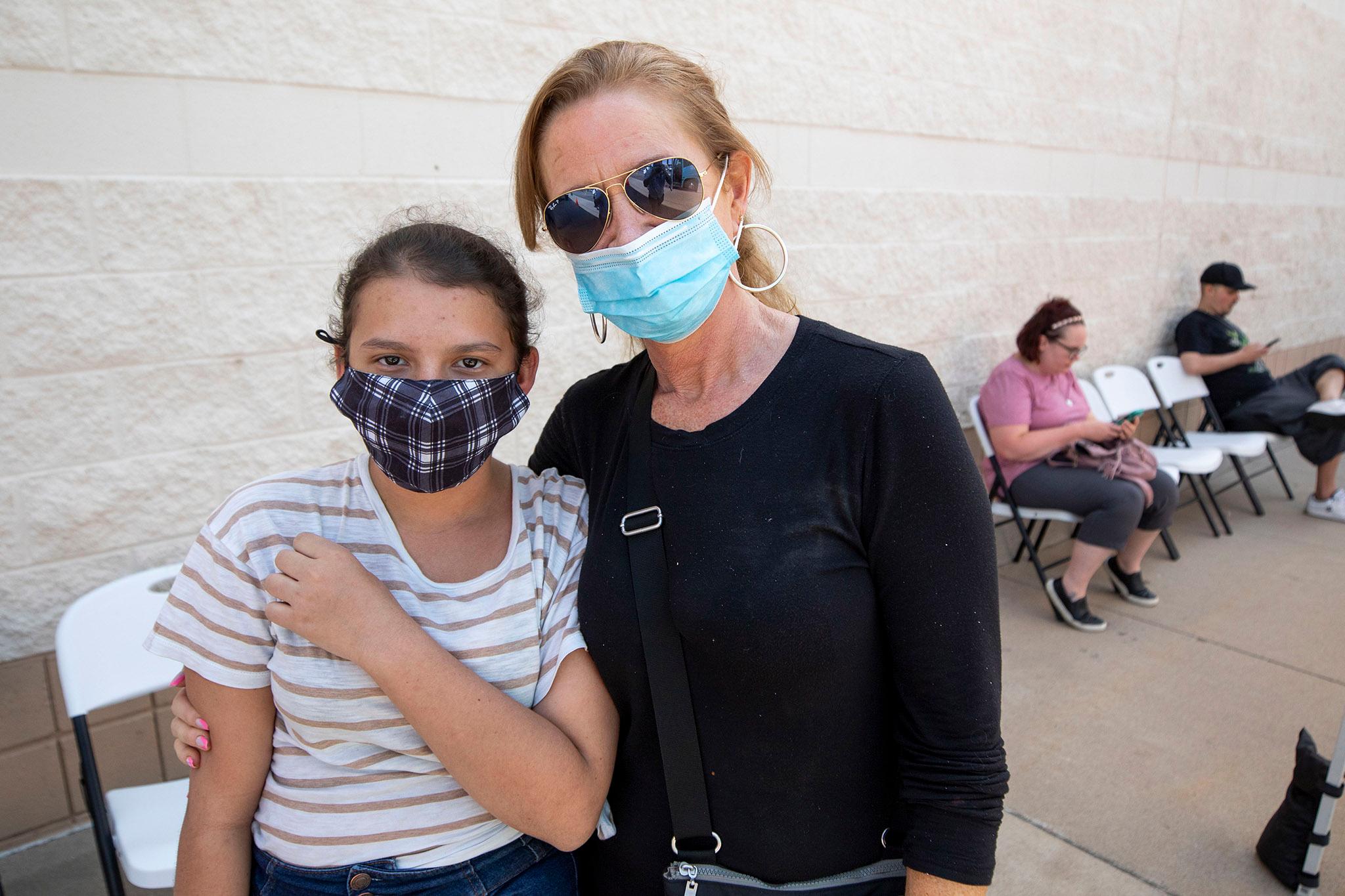
Now what? No surprise: There are concrete things that we can all do to prevent the spread of COVID -- even if we're exhausted by them.
"We all have COVID fatigue, right?" Welch said. "We want to move on. We want to be done with wearing our masks and doing all of these precautions, but unfortunately, we're back in an incredibly difficult spot, and we need Coloradans to kind of snap back into it and pay attention and start doing their part again."
That means people need to get vaccinated, get booster shots if they're eligible, wear masks in public spaces regardless of vaccination status, and get their flu shots to curb flu season.
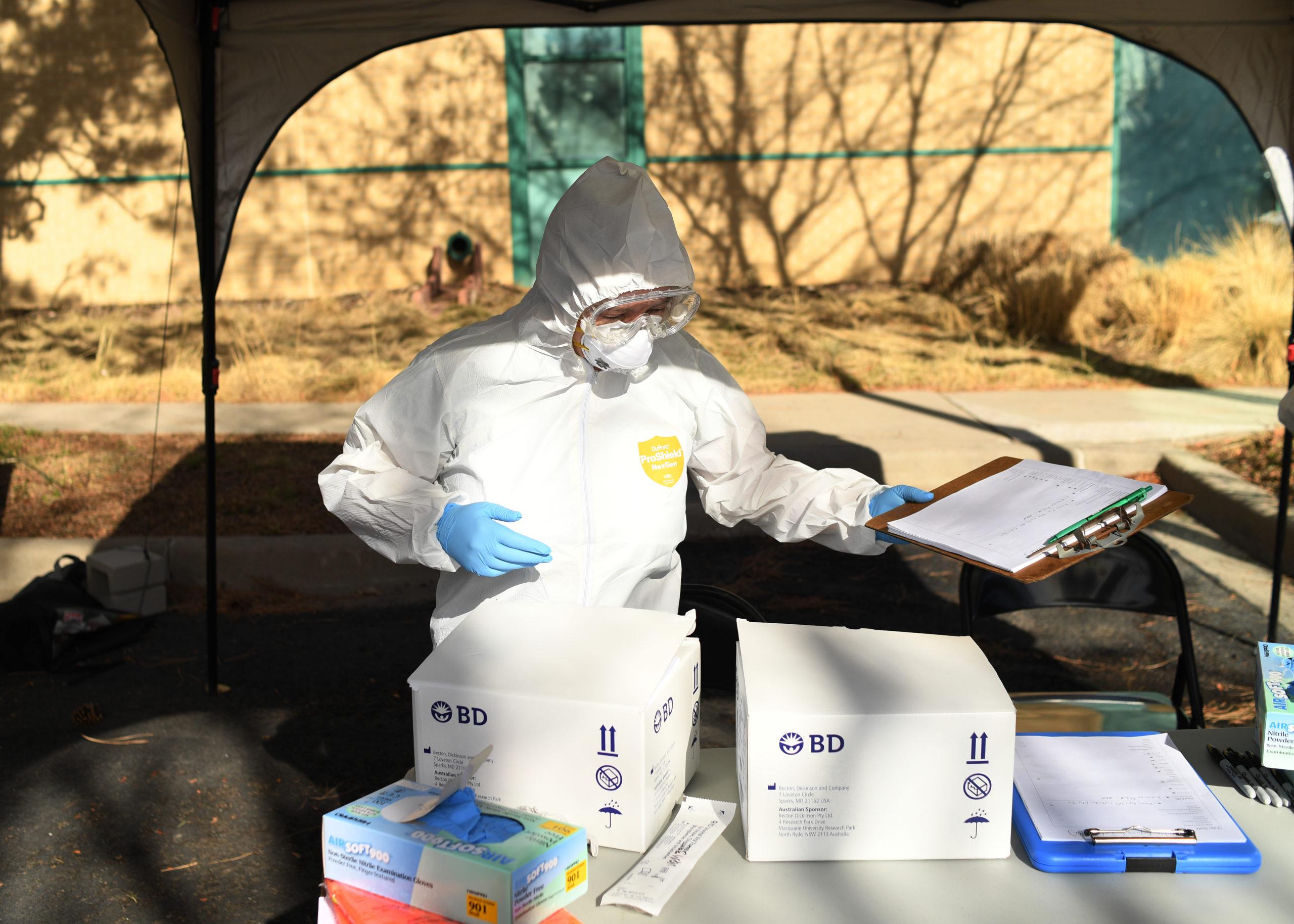
Don't avoid medical attention.
Early on in the pandemic, patients delayed their own health care. Now they are showing up to hospitals extremely sick.
"It's really concerning to read that hospitals are full. We're stretched to capacity. All of these things are happening," Welch said. "And we are concerned that they will cause people again to delay their own health care. And so we want people to remember to seek health care when they need it. And they should do it at the right level, at the right time, and at the right place."
Instead of putting off wellness checks and other doctors visits, Welch encouraged people to go immediately and address any health issues that might be coming up before they turn into big problems. Denver has plenty of urgent care facilities where non-life threatening injuries can be treated without a hospital visit.
If you feel like you should head to the hospital, there is no mixed message: Just go!
"If you need health care, if you have a life-threatening condition, go to the hospital emergency department," she said. "And if that hospital stabilizes you and then has to transfer you to another hospital, they'll do it safely. You'll still get the care that you need. We just don't want people staying home and avoiding all of that because they're worried about how full the hospitals are."

